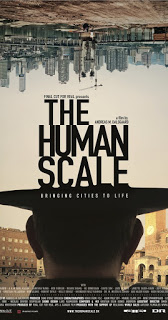

| Online: | |
| Visits: | |
| Stories: |

| Story Views | |
| Now: | |
| Last Hour: | |
| Last 24 Hours: | |
| Total: | |
The Human Scale — the review
Read aguanomics http://www.aguanomics.com/ for the world’s best analysis of the politics and economics of water  My girlfriend is really busy leading study tours and working with organizations devoted to understanding and improving urban sustainability (her site is Sustainable Amsterdam; here’s her TEDx on “cities for people or cars”), so we talk a LOT about cities, the commons, community, etc.
My girlfriend is really busy leading study tours and working with organizations devoted to understanding and improving urban sustainability (her site is Sustainable Amsterdam; here’s her TEDx on “cities for people or cars”), so we talk a LOT about cities, the commons, community, etc.
We just watched “The Human Scale,” a Danish film exploring how Jan Gehl and other “human-centric” urban planners are pushing for cities that work better for people instead of cars or real estate developers. You can watch the film on Vimeo here.
Although we may be seeing articles and discussions about revitalizing cities through a biased perspective (we left Vancouver to return to Amsterdam when we decided that Vancouver was too car-centric), it seems like there is more attention on these matters these days.
Mr Money Mustache — a blogger with millions of followers — just wrote a post talking about how car-centric cities are wasting $trillions on projects that don’t improve our lives.
These discussions matter in an age of populists promising to “Make [country x] great again” via infrastructure projects because more cement is only likely to result in worse cities for the next 100 years. Cities change slowly (a reason that Amsterdam is so great, after surviving an attempt to cover it with overpasses), so it’s urgent that new developments depart from the unsustainable (and inhuman) pattern of deadly driving, parking and sprawl.
These decisions also matter when it comes to climate change, as cities built around hard infrastructure are less adaptable and thus more expensive to “fix” when climate change impacts alter the attraction of places or outpace their urban forms.
Bottom Line: I give this film FIVE STARS for showing how we can build and live on a human scale, i.e., small-scale, flexible and attuned to natural flows and changes.
Source: http://www.aguanomics.com/2017/02/the-human-scale-review.html


